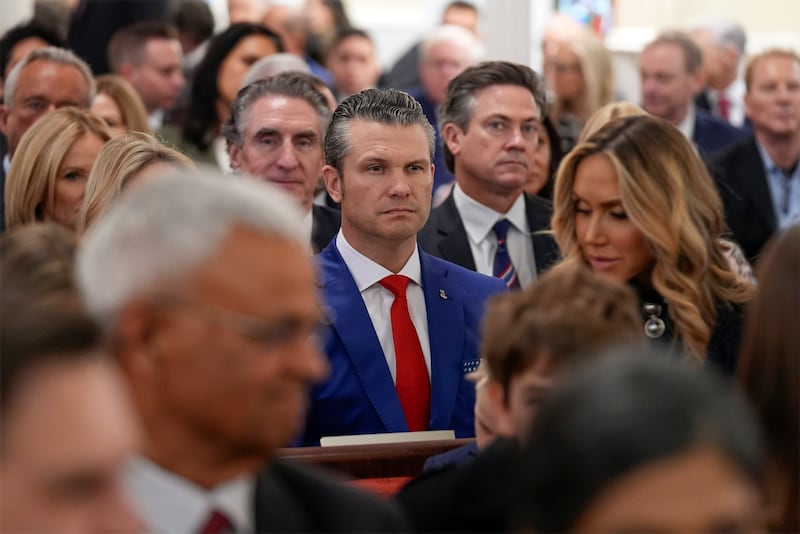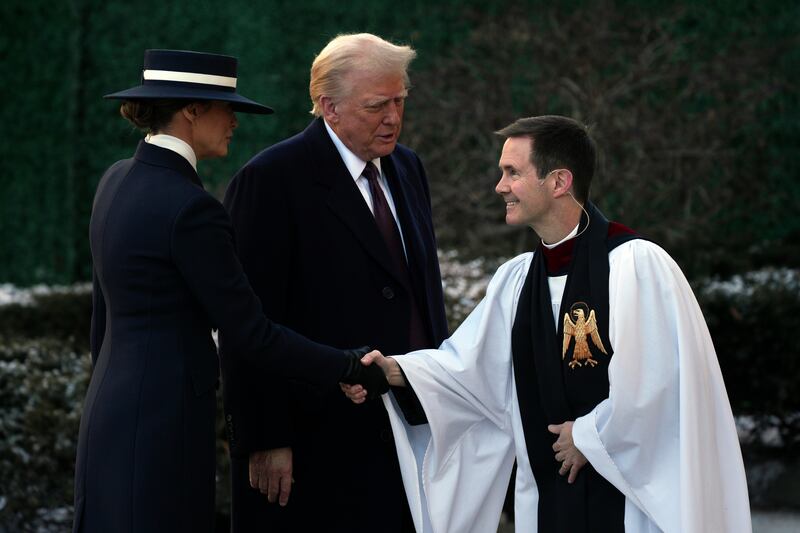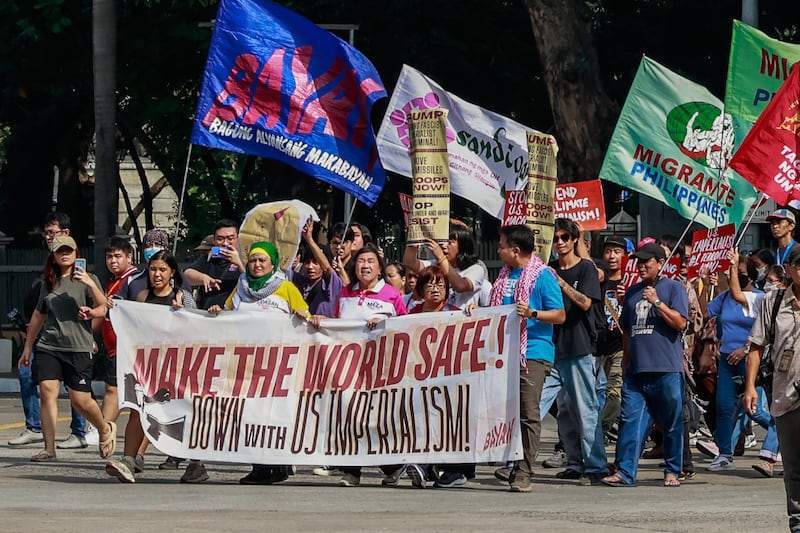UPDATED at 12:45 p.m. ET on 2025-01-20
Southeast Asia is greeting Donald Trump’s return to the White House with a mix of hope and hesitation as he embarks on his second term as U.S. president.
Trump took the oath of office on Monday inside the Capitol after the ceremony was moved indoors because of weather reports that a polar vortex would bring frigid temperatures to the nation's capital.
Even as regional leaders anticipate greater engagement with the United States, a controversial moment involving his defense secretary nominee, Pete Hegseth, has raised concerns about how the administration will treat relations with the Association of Southeast Asian Nations (ASEAN).
Hegseth, a former Army National Guard officer and television commentator, was unable to name ASEAN member states or identify the bloc's size during his confirmation hearing last week, drawing criticism both in Washington and across Southeast Asia.
“He doesn’t understand that the Defense Department’s work in the South China Sea, where the U.S. plays a major role, involves many ASEAN countries,” Isa Gharti, a public policy researcher at Chiang Mai University in Thailand, told BenarNews. “This lack of understanding could bring problems to ASEAN countries in the long term.”

ASEAN has been central to Washington's strategy in the Indo-Pacific. The bloc, which includes Indonesia, Malaysia, Vietnam and Singapore among its 10 members, represents more than 680 million people and collectively forms the world's fifth-largest economy.
The United States counts two other ASEAN nations, Thailand and the Philippines, as treaty allies and has sought to deepen ties with the group to counter China's growing influence in the region. The U.S. military has access to nine Philippine bases.
China has made significant inroads in Southeast Asia, investing in infrastructure projects and using its economic clout to build partnerships. The South China Sea, where Beijing’s territorial claims overlap with those of several ASEAN nations, remains a key flashpoint in the region.
RELATED STORIES
[ Asia sends top officials to Trump inauguration amid concern over trade, securityOpens in new window ]
[ Rubio to lobby Thailand not to deport detained Uyghurs to ChinaOpens in new window ]
[ Is Southeast Asia ready for the abrupt changes Trump could usher in?Opens in new window ]
While Hegseth fumbled in responding to questions from Sen. Tammy Duckworth, who was born in Bangkok and injured in combat while serving in the U.S. military, regional leaders have expressed optimism about U.S. engagement under Trump’s leadership.
Indonesian President Prabowo Subianto has congratulated Trump on his victory and expressed his desire for a personal meeting.
Malaysian Prime Minister Anwar Ibrahim hailed Trump’s election as a “remarkable political comeback” and voiced optimism about the potential for a deeper partnership with the United States.
Analysts react
Raden Mokhamad Luthfi, a defense analyst at Universitas Al Azhar Indonesia, said he is skeptical about future defense relations between the United States and Indonesia, the world’s largest Muslim-majority country, citing what he described as Hegseth’s and Trump’s unfavorable views of Muslims.

Cristina Palabay, secretary general of the Philippine rights group Karapatan, accused Washington of using allies including the Philippines to further its strategic goals.
“Trump’s hostility toward China certainly matches, if not surpasses, that of Biden,” Palabay said.
In Bangkok, Phumtham Wechayachai, Thai deputy prime minister and defense minister, struck a cautious tone.
“After Trump’s inauguration as U.S. president, we need to see what adjustments may be needed,” Phumtham told reporters. “Overall, the foundation of U.S.-Thai relations is already good. We will consider any proposals according to Thai principles and make any adjustments that benefit the nation.”
Other analysts suggested that Hegseth’s misstep might not significantly impact U.S. engagement with the region.
“It would be folly to assume that just because the secretary of defense may not be familiar with ASEAN, that is tantamount to weaker U.S. engagement,” said Julio Amador, a geopolitical analyst based in Manila. “The Pentagon is a huge bureaucracy and Hegseth’s deputies are well-versed in the geopolitics of the Indo-Pacific.”
Muhammad Waffaa Kharisma, a researcher at the Centre for Strategic and International Studies (CSIS) in Jakarta, argued that ASEAN is not strategically significant to the United States.
“Perhaps some ASEAN member states are, but ASEAN as an institution isn’t, especially in an era when enthusiasm for multilateral organizations has waned,” Waffaa told BenarNews.
He added that Trump’s first term as president was “not particularly enthusiastic” about ASEAN.
“They came up with initiatives which were seen as undermining ASEAN, including the Quad,” he said, referring to a security dialogue among the United States, Japan, India and Australia.
‘Limited awareness’
Asrul Hadi Abdullah Sani, a partner at ADA Southeast Asia, a regional consultancy firm, said Hegseth’s “gaffe underscores the limited awareness of ASEAN in American political circles.”
Still, concerns remain about the Trump administration’s long-term priorities.

“We will need to plan for a worst-case scenario in which Trump and Xi will reach a modus vivendi that sacrifices the Philippines’ national interests,” Rommel Jude Ong, a retired Philippine Navy rear admiral, told BenarNews while calling for stronger ties with other regional powers such as Japan and Australia. Xi is Xi Jinping, China's president.
Meanwhile, a social media user in Southeast Asia questioned Hegseth’s comments.
“Not having heard of ASEAN doesn’t mean it doesn’t exist. All of us here in the ASEAN are cringing over what’s happening over there in the West,” a Filipina who goes by the username @tessgarcia wrote on X, formerly Twitter. “Geography-challenged people like Hegseth are probably the reason the U.S. lost in Vietnam (an ASEAN country).”
Jason Gutierrez and Gerard Carreon in Manila, Jon Preechawong in Bangkok, Iman Muttaqin Yusof and Iskandar Zulkarnain in Kuala Lumpur, Pizaro Gozali Idrus and Tria Dianti in Jakarta contributed to this report.
